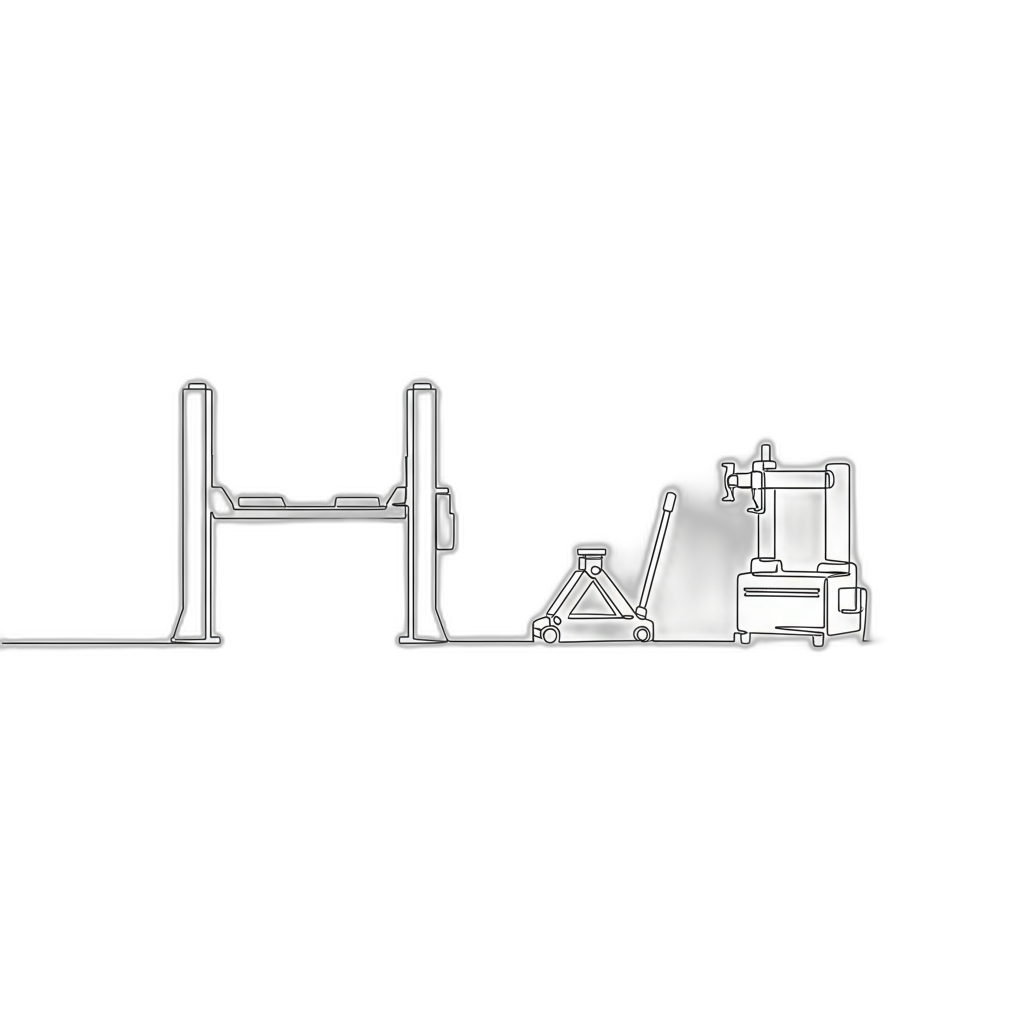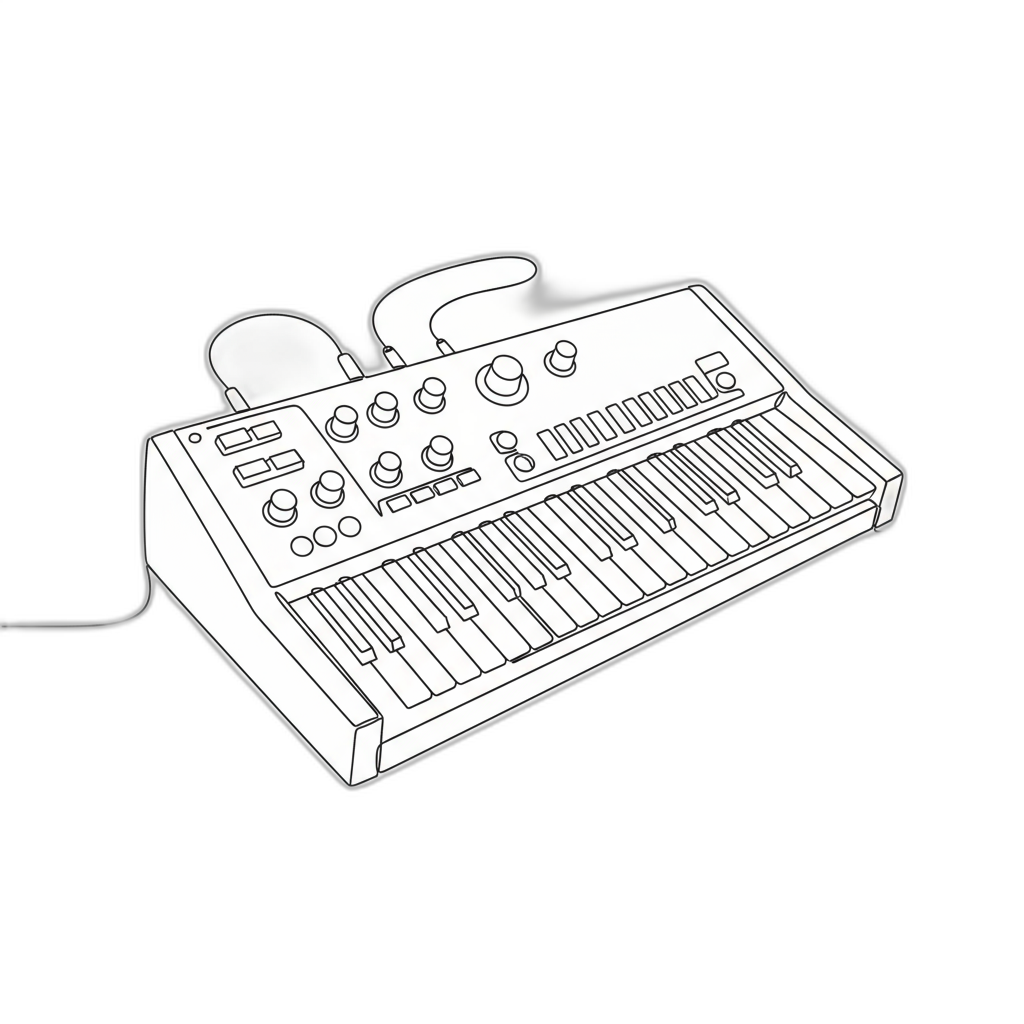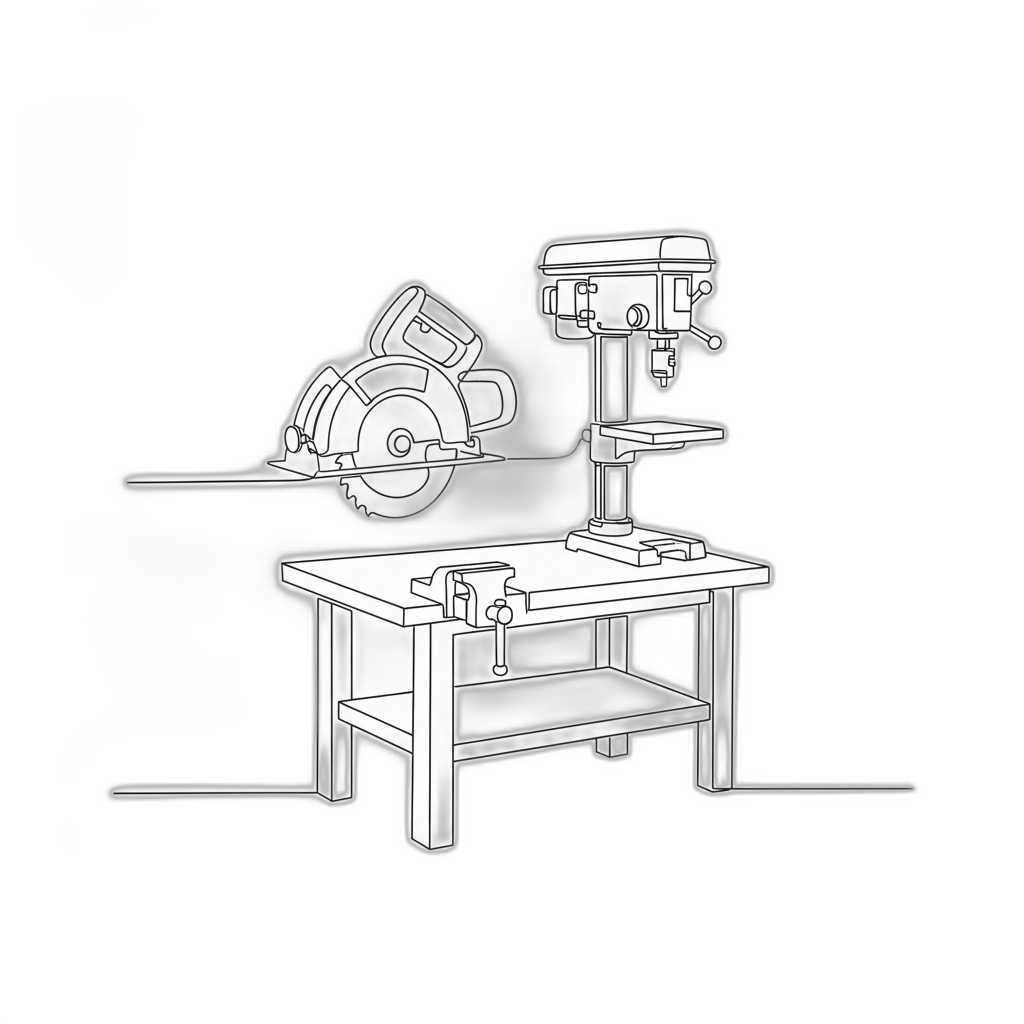About Equipment & Machinery Appraisals for IRS Form 8283
If you are donating, selling, insuring, or reporting heavy assets, an Equipment And Machinery appraisal for IRS Form 8283 makes the value you claim defensible and IRS-ready. Form 8283 must be filed when your total noncash charitable contributions exceed $500, and the IRS requires a qualified appraisal for donated equipment or machinery when the claimed fair market value is over $5,000. Qualified appraisals must be prepared by a credentialed appraiser, signed, and dated no earlier than 60 days before the donation and before the tax return due date. The appraiser must sign Part IV and the donee must complete the acknowledgement in Section B for donations over $5,000, so missing a required appraisal or signatures can increase audit risk and lead to a disallowed deduction. For official guidance see [IRS Form 8283](https://www.irs.gov/forms-pubs/about-form-8283), the [Instructions for Form 8283](https://www.irs.gov/instructions/i8283), and [Publication 561](https://www.irs.gov/publications/p561).
AppraiseItNow delivers USPAP-compliant, IRS-qualified Equipment And Machinery appraisals and can provide the signed appraisal report plus the blank Form 8283 signature page you need to attach to your return. In this FAQ we include a quick checklist to answer "Do I need an appraisal?" with the $500 and $5,000 thresholds, a timing timeline that shows the 60-day appraisal window and filing deadline, and a short real-world example of a $15,000 tractor donation and the documentation steps taken. For next steps and detailed filing tips see our [IRS Form 8283 appraiser guide](/blog/irs-form-8283-appraiser-guide), review common filing errors in [10 common mistakes to avoid when filling out IRS Form 8283 for non cash charitable contributions](/blog/10-common-mistakes-to-avoid-when-filling-out-irs-form-8283-for-non-cash-charitable-contributions), and learn more about the asset types we appraise on our [Equipment & Machinery](/types/equipment-and-machinery) and [Appraisal IRS Form 8283](/purposes/appraisal-irs-form-8283) pages. If you plan to claim a deduction, start the appraisal process early so your report is dated within the IRS window and your Form 8283 is complete and signed before filing.
Frequently Asked
Questions
No Frequently Asked Questions Found.
What is IRS Form 8283?
IRS Form 8283 serves as a critical document for taxpayers who make substantial non-cash charitable donations. This specialized tax form enables individuals and organizations to accurately report property contributions to charitable organizations, ensuring proper documentation of charitable giving and potential tax deductions. The form becomes particularly important when donations exceed $500, requiring detailed information about the donated property, its fair market value, and the receiving charitable organization. By providing a structured method for reporting charitable contributions, Form 8283 helps taxpayers maintain transparency with the Internal Revenue Service while supporting their ability to claim appropriate tax deductions for philanthropic efforts.
Why do I need an appraisal for IRS Form 8283?
Navigating the complexities of charitable donations requires a clear understanding of IRS documentation and valuation requirements. When donating non-cash items valued over $500, taxpayers must provide a comprehensive and accurate assessment of the property's value through IRS Form 8283. A professional appraisal becomes critical in this process, serving multiple essential functions beyond simple documentation.
An independent appraisal provides an objective, credible valuation that meets strict IRS guidelines. This detailed assessment examines the item's condition, market comparables, and intrinsic characteristics to determine its fair market value. By obtaining a professional evaluation, donors create a robust defense against potential audit scrutiny and ensure they're accurately representing their charitable contributions.
The appraisal serves multiple critical purposes. It helps taxpayers comply with IRS regulations, prevents potential penalties from misreporting, and provides transparency for both donors and receiving charitable organizations. Different types of property—whether artwork, vehicles, real estate, or other significant assets—often require specialized valuation approaches that a qualified appraiser can expertly navigate.
Beyond regulatory compliance, a well-documented appraisal supports the broader mission of charitable giving. It allows non-profit organizations to accurately record and understand the true value of in-kind donations, enhancing their financial reporting and demonstrating the tangible impact of charitable contributions.
Most importantly, a professional appraisal protects the donor's interests. It provides a credible, independent assessment that can withstand potential IRS review, giving taxpayers confidence in their charitable deduction claims. By investing in a thorough, professional valuation, donors can ensure their generosity is both recognized and properly documented.
What is an Equipment & Machinery appraisal?
An Equipment & Machinery appraisal represents a comprehensive professional assessment that determines the precise value of industrial assets. This meticulous evaluation provides critical insights into the monetary worth of machinery, tools, and equipment across diverse sectors such as manufacturing, construction, agriculture, and mining.
Professional certified appraisers utilize sophisticated methodologies to analyze machinery value, considering multiple critical factors. These include equipment age, current condition, operational performance, maintenance history, technological relevance, and prevailing market conditions. By incorporating detailed examinations of physical attributes and economic context, appraisers can generate an accurate and defensible valuation.
The appraisal process typically involves three primary valuation approaches: cost, market, and income. The cost approach evaluates replacement expenses while accounting for depreciation. The market approach compares similar equipment transactions to establish fair market value. The income approach estimates potential future economic benefits generated by the machinery.
Key considerations during an equipment appraisal extend beyond simple numerical calculations. Appraisers carefully assess unique characteristics like specialized modifications, technological capabilities, and potential obsolescence. They also examine maintenance records, operational efficiency, and broader industry trends that might influence asset value.
The resulting comprehensive report serves multiple strategic purposes. It provides crucial documentation for financial transactions, insurance coverage, tax planning, potential sales, mergers, and internal asset management. By offering an objective, professional evaluation, equipment appraisals enable businesses to make informed decisions about their capital assets.
Ultimately, an Equipment & Machinery appraisal delivers more than just a monetary figure. It provides a nuanced understanding of an organization's technological infrastructure, supporting strategic planning and financial transparency.
Can I get an Equipment & Machinery appraisal done online?
Online equipment and machinery appraisals have become increasingly feasible with advancements in digital communication technologies. The process typically begins by submitting comprehensive photographs and detailed information about the equipment, including its condition, usage history, and specific characteristics. These materials can be exchanged electronically, allowing appraisers to conduct preliminary assessments efficiently.
When photographic documentation requires supplementation, professional appraisers leverage video conferencing platforms to conduct live consultations. These virtual interactions enable real-time discussions about equipment specifics, allowing for a more nuanced evaluation of complex machinery or specialized assets. Such remote assessment methods can significantly reduce time and travel expenses associated with traditional in-person appraisals.
The effectiveness of online appraisals depends on several critical factors. High-resolution, well-lit photographs that capture multiple angles and key mechanical details are essential for accurate initial assessments. Clients should be prepared to provide comprehensive documentation, including maintenance records, operational history, and any unique modifications or features that might impact the equipment's value.
While online appraisals offer remarkable convenience, they are not universally applicable. Certain highly specialized or intricate equipment may still require in-person examination to ensure a comprehensive and precise valuation. Professional appraisers will typically indicate when a remote assessment is insufficient and an on-site inspection becomes necessary.
Clients should always verify an appraiser's professional credentials and ensure the evaluation meets industry standards, particularly the Uniform Standards of Professional Appraisal Practice (USPAP). This diligence guarantees the reliability and credibility of the appraisal for potential uses such as financial reporting, insurance claims, or resale considerations.
What are the different types of Equipment & Machinery appraisals?
Equipment and machinery appraisers are specialized professionals who provide critical valuation services across diverse industrial sectors. These experts possess deep technical knowledge and industry-specific expertise that enables precise assessment of equipment value. Their professional insights go far beyond basic price estimation, encompassing comprehensive evaluations that consider multiple complex factors.
Different types of equipment appraisers emerge from specific industrial domains, each bringing targeted expertise to the valuation process. Construction equipment appraisers evaluate heavy machinery like excavators and cranes, understanding regional development trends and equipment performance characteristics. Manufacturing equipment specialists focus on production machinery, analyzing technological complexity, usage history, and potential productivity impact.
Agricultural equipment appraisers examine farming machinery with nuanced understanding of seasonal productivity and technological advancements. Medical equipment professionals navigate intricate healthcare technology landscapes, assessing sophisticated diagnostic and surgical instruments. Transportation equipment experts evaluate vehicles and logistics equipment, considering depreciation rates and market demand dynamics.
Heavy equipment appraisers bring specialized knowledge to complex industrial machinery used in sectors like mining and energy. Technology equipment specialists track rapid technological evolution, providing critical insights into rapidly depreciating digital assets and communication systems.
Each appraiser type represents a unique intersection of technical knowledge, market understanding, and industry-specific insights. Their professional assessments provide crucial information for business decision-making, asset management, insurance purposes, and strategic planning across multiple economic sectors.
Why should I get an Equipment & Machinery appraisal?
Obtaining an equipment and machinery appraisal is a strategic necessity that provides comprehensive insights for businesses and individuals across multiple critical domains. Far beyond a simple valuation exercise, these assessments deliver actionable intelligence that supports informed decision-making and financial risk management.
Insurance coverage represents a primary driver for professional appraisals. An accurate valuation ensures precise protection against potential losses, preventing both underinsurance vulnerabilities and unnecessary premium expenditures. By establishing a credible baseline for asset worth, organizations can design insurance strategies that are both protective and cost-effective.
Tax compliance represents another compelling rationale for equipment appraisals. When donating high-value machinery or equipment, a professional assessment becomes essential for substantiating tax deduction claims. These documented valuations provide the necessary transparency to satisfy regulatory requirements while potentially maximizing financial benefits.
Financial reporting demands rigorous asset valuation. Appraisals offer a clear, defensible representation of equipment value on balance sheets, enabling more sophisticated financial analysis. This transparency becomes particularly crucial when attracting investors or securing lending, as financial institutions rely on precise asset assessments to evaluate collateral and organizational health.
Legal proceedings frequently necessitate objective equipment valuations. During complex scenarios like partnership dissolutions or divorce settlements, a professional appraisal provides an impartial benchmark for asset division. The documented valuation serves as a credible reference point for negotiations, potentially mitigating potential conflicts.
Transaction dynamics also benefit significantly from professional appraisals. Whether purchasing or selling machinery, an independent valuation establishes a fair market baseline. This approach fosters trust between parties, facilitates more transparent negotiations, and helps prevent potential disputes arising from subjective price perceptions.
Strategic asset management represents the most forward-looking benefit of equipment appraisals. Regular assessments provide insights into asset depreciation, replacement timing, and potential upgrade opportunities. By understanding the precise value and condition of existing equipment, organizations can make more intelligent decisions about resource allocation, technological investments, and long-term operational planning.
Ultimately, a professional equipment and machinery appraisal transcends mere number-crunching. It represents a sophisticated tool for financial governance, risk management, and strategic organizational development.
How much does an Equipment & Machinery appraisal cost?
What Makes Equipment & Machinery Appraisals Unique?
The Distinctive Nature of Equipment & Machinery Appraisals
Equipment and machinery appraisals represent a specialized field of valuation that demands exceptional expertise and precision. Unlike standard asset assessments, these evaluations involve intricate considerations that set them apart from typical property or consumer product appraisals.
Key Distinguishing Factors
- Complexity of Valuation
Multiple dynamic factors influence equipment and machinery value, including:
- Current condition
- Equipment age
- Brand and model specifications
- Technological sophistication
- Market demand
- Replacement costs
- Industry-Specific Expertise
Different sectors require nuanced understanding of machinery valuation, such as:
- Construction
- Manufacturing
- Agriculture
- Healthcare
Professional appraisers must comprehend functional value within specific industry contexts.
- Rigorous Regulatory Compliance
IRS Form 8283 appraisals demand strict adherence to:
- Uniform Standards of Professional Appraisal Practice (USPAP)
- Comprehensive documentation
- Defensible valuation methodologies
- Credible supporting evidence
- Comprehensive Depreciation Analysis
Systematic evaluation of value reduction considering:
- Physical wear and tear
- Operational usage levels
- Potential technological obsolescence
- Market technological trends
- Purpose-Driven Valuation
Appraisals serve diverse objectives, including:
- Charitable contribution documentation
- Estate planning assessments
- Business liquidation strategies
Understanding these unique characteristics ensures accurate, compliant, and meaningful equipment and machinery valuations that support informed financial decision-making.
Why Are Equipment & Machinery Appraisals Critical for IRS Form 8283?
Equipment and machinery appraisals are critical for individuals and businesses seeking to claim tax deductions for non-cash charitable contributions on IRS Form 8283. These professional valuations play a crucial role in ensuring compliance with tax regulations and maximizing potential tax benefits.
Why Professional Appraisals Matter
The IRS requires accurate and substantiated valuations for donated equipment or machinery to validate tax deductions. A certified appraiser provides a comprehensive assessment that addresses several key factors:
- Precise Valuation: Determines the fair market value of donated items with professional accuracy
- Comprehensive Analysis: Evaluates multiple critical aspects of the equipment's worth
- Audit Protection: Minimizes risks associated with potential IRS scrutiny
Key Evaluation Criteria
Professional appraisers conduct a thorough assessment based on several essential elements:
- Condition and Age: Thoroughly examines the physical state and operational lifespan of the equipment
- Type and Usage: Considers industry-specific factors that impact equipment value
- Market Comparisons: Utilizes comprehensive market data, including:
- Comparable sales information
- Current industry trends
- Economic indicators
Benefits of Comprehensive Appraisals
A credible appraisal provides multiple advantages:
- Donor Protection: Reduces the risk of audit and potential financial penalties
- Organizational Integrity: Provides clear documentation for recipient organizations
- Transparency: Builds trust between donors and recipient organizations
Strategic Importance
Beyond mere compliance, a professional equipment and machinery appraisal represents a strategic approach to charitable giving. It ensures that donors maximize their tax benefits while maintaining the highest standards of financial transparency and accountability.
Identifying Equipment Eligible for Valuation
Identifying the right equipment for appraisal requires a comprehensive understanding of what qualifies for valuation, particularly when preparing documentation for IRS Form 8283. This form is critical for reporting non-cash charitable contributions, and accurately assessing the fair market value of equipment and machinery ensures compliance and financial transparency.
Key Criteria for Equipment Valuation Eligibility
Equipment Classification
- Machinery and equipment not considered inventory are typically eligible for appraisal
- Examples include specialized tools, industrial machinery, vehicles, and technical equipment
- Personal-use items generally do not qualify under IRS guidelines
Assessment Factors
- Condition and Age
- Equipment in good working order typically commands higher valuation
- Minimal wear and documented maintenance history positively impact value
- Age directly influences depreciation calculations
- Market Relevance
- Current market demand significantly affects appraisal value
- Recent sales data of comparable equipment provides valuation benchmarks
- Industry-specific equipment may have niche valuation considerations
- Documentation Requirements
- Comprehensive supporting documentation is crucial
- Include purchase invoices, maintenance records, and previous appraisal reports
- Provenance and ownership history can enhance equipment value
Charitable Contribution Considerations
When preparing equipment for charitable donation, consider the following valuation factors:
- Intended use by the recipient organization
- Operational significance of the equipment
- Potential resale or repurposing potential
Careful evaluation of these guidelines ensures accurate equipment identification, supports IRS compliance, and facilitates fair value assessments for non-cash charitable donations.
Decoding the Valuation Process: Key Considerations
Understanding the Equipment Valuation Process for Tax Purposes
Navigating the equipment and machinery appraisal process for IRS Form 8283 requires careful attention to multiple critical factors. By understanding these key considerations, you can ensure a comprehensive and accurate valuation that meets IRS requirements.
Essential Valuation Considerations
- Appraisal Purpose
- Critical for substantiating tax deduction claims, especially charitable donations
- Required for property donations exceeding $5,000
- Must be conducted by a qualified appraiser with specialized equipment expertise
- Equipment Classification
- Different equipment categories require unique valuation approaches
- Valuation varies based on:
- Industry standards
- Equipment type
- Market demand
- Examples include heavy machinery, manufacturing equipment, and office machines
- Condition and Age Assessment
- Physical state directly impacts market value
- Key evaluation factors:
- Wear and tear
- Functional capability
- Maintenance history
- Comprehensive usage documentation strengthens valuation accuracy
- Market Trend Analysis
- Comprehensive review of current market conditions
- Evaluation includes:
- Comparable sales data
- Industry benchmarks
- Economic factors
- Local and national demand assessment
- Supporting Documentation
- Critical for establishing valuation credibility
- Recommended documentation:
- Original purchase receipts
- Detailed maintenance records
- High-quality equipment photographs
- Provides reference points for appraisers and potential IRS review
By meticulously addressing these considerations and collaborating with a qualified appraiser, you can successfully navigate the equipment valuation process and ensure compliance with IRS Form 8283 requirements.
Market Value vs. Fair Value: Understanding the Difference
When discussing equipment and machinery appraisals for IRS Form 8283 purposes, understanding the distinction between market value and fair value is crucial. While these terms might seem similar, they represent distinct valuation approaches with significant implications.
Market Value: The Competitive Marketplace Perspective
Market value represents the estimated price an asset would command in an open, competitive market under standard conditions. Key characteristics include:
- Based on supply and demand dynamics
- Reflects current economic conditions
- Determined by observable market trends
- Considers equipment's age, condition, and functionality
Market Value Factors
Several elements influence market value calculation:
- Current industry demand
- Technological advancements
- Equipment's operational efficiency
- Comparable sales in the relevant market
Fair Value: A Comprehensive Valuation Approach
Fair value provides a more nuanced assessment of an asset's worth, encompassing broader considerations beyond immediate market conditions. This approach:
- Evaluates price in an orderly transaction between market participants
- Incorporates specific asset circumstances
- Accounts for depreciation and use limitations
- Considers contractual agreements affecting saleability
Importance for IRS Form 8283
Distinguishing between market and fair value is essential for accurate tax reporting, especially for charitable equipment contributions. A precise valuation ensures:
- Compliance with IRS regulations
- Accurate financial documentation
- Transparent asset representation
- Mitigation of potential tax-related complications
Ultimately, understanding these valuation methods enables stakeholders to make informed decisions and maintain financial integrity when reporting equipment and machinery values.
Navigating Common Pitfalls in Equipment Appraisals
Understanding Critical Challenges in Equipment Appraisals
Equipment appraisals are complex processes crucial for financial and legal documentation, particularly for IRS Form 8283 reporting. Recognizing and addressing potential challenges can significantly improve the accuracy and reliability of your valuation.
Common Pitfall #1: Outdated Information and Incomplete Documentation
- Equipment values constantly fluctuate due to:
- Market dynamics
- Technological advancements
- Asset condition changes
- Critical steps to mitigate risks:
- Perform comprehensive equipment inspections
- Maintain updated maintenance and purchase records
- Track current market trends
Common Pitfall #2: Selecting an Inexperienced Appraiser
- Key credentials to verify:
- Specialized industry knowledge
- Professional certifications
- Demonstrated experience with similar equipment
- Potential consequences of choosing an unqualified appraiser:
- Inaccurate valuation
- Unreliable assessment
- Potential legal and financial risks
Common Pitfall #3: Appraisal Bias and Lack of Objectivity
- Sources of potential bias:
- Personal preconceptions
- External pressures
- Limited perspective
- Strategies to ensure impartiality:
- Choose certified, independent appraisers
- Request transparent valuation methodologies
- Seek multiple professional opinions when necessary
Common Pitfall #4: Inadequate Communication
- Communication challenges can lead to:
- Misaligned expectations
- Incomplete assessment criteria
- Potential valuation disputes
- Best practices for effective communication:
- Clearly define appraisal objectives
- Establish open dialogue channels
- Provide comprehensive equipment background information
By proactively addressing these common pitfalls, clients can significantly enhance the accuracy, reliability, and defensibility of their equipment appraisals for IRS Form 8283 purposes.
How to Choose the Right Appraiser for Your Needs
Key Considerations When Selecting an Equipment Appraiser
Choosing the right appraiser for equipment and machinery valuation is critical, especially for IRS Form 8283 purposes. The right professional ensures compliance with guidelines and provides an accurate, fair assessment of your assets.
Essential Qualifications to Evaluate
- Professional Certifications
Verify the appraiser holds recognized credentials such as:
• Certified Equipment Appraiser (CEA)
• Accredited Senior Appraiser (ASA)
• Credentials demonstrating comprehensive understanding of appraisal methodologies and professional ethics
- Industry-Specific Expertise
Select an appraiser with specialized experience in:
• Your specific equipment type
• Relevant industry sector
• Understanding of current market trends and valuation nuances
- IRS Compliance Knowledge
Ensure the appraiser demonstrates:
• Comprehensive understanding of IRS Form 8283 requirements
• Ability to prepare detailed, compliant documentation
• Expertise in meeting specific valuation standards
Additional Selection Criteria
- Process Transparency
A reputable appraiser will:
• Clearly explain their valuation methodology
• Provide insights into assessment techniques
• Answer questions about their approach
- Professional Reputation
Validate the appraiser's credibility through:
• Client references
• Professional reviews
• Industry reputation
• Track record of accurate, ethical valuations
Selecting the right appraiser is a strategic investment in accurate asset valuation and effective navigation of complex tax regulations.
Preparing for a Comprehensive Equipment Appraisal
Essential Preparation for Equipment Appraisal Success
When preparing for an equipment appraisal related to IRS Form 8283, strategic planning is crucial for a comprehensive and accurate assessment. A well-prepared approach ensures precise valuation and supports critical business and tax reporting objectives.
Key Preparation Steps
- Comprehensive Documentation Collection
- Gather original purchase invoices
- Compile maintenance and service records
- Collect detailed equipment photographs
- Assemble shipping and warranty documentation
- Detailed Equipment Inventory
- Create a systematic list of all equipment
- Include specific details:
- Manufacturer
- Model number
- Serial number
- Purchase date
- Current condition
- Market Condition Analysis
- Research current industry trends
- Understand technological advancements
- Evaluate current market demand
- Recognize potential value influencers
- Clear Appraisal Objectives
- Specify precise appraisal purpose
- Determine reporting requirements
- Align with potential tax deduction goals
- Ensure compliance with IRS guidelines
- Professional Appraiser Selection
- Verify industry-specific expertise
- Check professional credentials
- Request sample appraisal reports
- Confirm familiarity with IRS Form 8283 requirements
Strategic Benefits
A methodical approach to equipment appraisal preparation provides multiple advantages, including enhanced valuation accuracy, smoother assessment processes, and stronger documentation for potential tax reporting needs.
By implementing these comprehensive preparation strategies, businesses can ensure a more precise, efficient, and valuable equipment appraisal experience that meets both financial and regulatory standards.
Depreciation's Impact on Equipment Valuation
Understanding Depreciation in Equipment Valuation
Depreciation is a critical factor in determining the fair market value of equipment and machinery, particularly when preparing IRS Form 8283 for non-cash charitable contributions. This process reflects the systematic reduction in an asset's value over time due to usage, wear and tear, and technological obsolescence.
Common Depreciation Methods
- Straight-Line Depreciation
The most straightforward depreciation method, which:
• Evenly distributes the asset's cost over its useful life
• Provides consistent annual depreciation expenses
• Simplifies accounting and financial reporting
- Declining Balance Depreciation
An accelerated approach that:
• Applies higher depreciation rates in early asset years
• Maximizes tax deductions in the short term
• Reflects rapid value loss for technology-driven equipment
- Units of Production Depreciation
A usage-based method that:
• Calculates depreciation based on actual asset utilization
• Ideal for equipment with variable operational intensity
• Provides a more precise valuation for heavily used machinery
Critical Valuation Considerations
Accurate equipment appraisals require a comprehensive approach that examines:
- Asset age and overall condition
- Maintenance and service history
- Current market demand
- Technological relevance
- Potential future earnings capacity
Key Insights for Precise Valuation
Appraisers must navigate complex factors when assessing equipment value, including:
- Comprehensive Documentation: Maintaining detailed records of maintenance, repairs, and previous valuations
- Market Dynamics: Analyzing current economic conditions and industry-specific trends
- Technological Evolution: Understanding how technological advancements impact equipment value
By carefully considering depreciation methodologies and market factors, appraisers can provide precise valuations that meet IRS guidelines and support transparent charitable donation processes.
Real-World Success: Equipment Appraisal Case Studies
Case Study 1: Construction Company Equipment Donation
In a strategic charitable contribution scenario, a construction company demonstrated the critical importance of professional equipment appraisal for IRS Form 8283 documentation.
Key Highlights:
- Intended to donate heavy machinery to a local non-profit organization
- Required a comprehensive, qualified appraisal to substantiate tax deduction value
- Appraisal considered critical factors including:
- Current market demand
- Equipment age
- Overall condition
- Final appraisal value significantly exceeded original estimates
- Outcome: Maximized tax advantages while supporting community initiatives
Case Study 2: Manufacturing Firm Pre-Merger Valuation
A manufacturing firm demonstrated the strategic value of comprehensive equipment appraisal during potential corporate merger proceedings.
Appraisal Methodology:
- Employed multi-approach valuation strategy:
- Cost approach
- Income approach
- Market value approach
- Detailed analysis included:
- Comparable equipment sales
- Production capability assessment
- Depreciation calculations
- Resulting appraisal report became critical negotiation tool
- Facilitated informed decision-making for stakeholders
- Ultimately contributed to successful merger completion
Case Study 3: Food Processing Equipment Liquidation
A small food processing business showcased the financial benefits of professional equipment appraisal during machinery liquidation.
Strategic Approach:
- Rejected quick, undervalued sale option
- Commissioned thorough professional appraisal
- Appraisal strategy focused on:
- Identifying unique equipment features
- Determining fair market value
- Highlighting potential buyer interests
- Result: Sale price substantially exceeded initial expectations
Conclusion: The Strategic Value of Professional Equipment Appraisal
These case studies illustrate the multifaceted benefits of professional equipment appraisals, demonstrating their crucial role in:
- Satisfying IRS documentation requirements
- Supporting strategic business decisions
- Maximizing asset value
- Providing comprehensive financial insights
Compliance and Regulatory Insights
When dealing with equipment and machinery appraisals for IRS Form 8283, compliance and regulatory insights are critical for accurately reporting noncash charitable contributions. Understanding these regulations helps taxpayers navigate complex tax laws while maintaining federal compliance.
Key Compliance Requirements for Equipment Appraisals
- Form 8283 is mandatory for noncash contributions exceeding $500
- Appraisals must reflect fair market value - the price property would sell for between a willing buyer and seller
- Certified appraisers must perform valuations following specific IRS guidelines
Appraiser Qualifications
Selecting a qualified appraiser is fundamental to ensuring regulatory compliance. Preferred credentials include:
- Accredited Senior Appraiser (ASA)
- Certified Equipment Appraiser (CEA)
- Demonstrated expertise in equipment valuation
Comprehensive Appraisal Documentation
A robust appraisal report should comprehensively address the following elements:
- Detailed equipment description
- Valuation methodology
- Comparable sales analysis
- Appraiser's professional qualifications
Potential Consequences of Non-Compliance
Failure to meet IRS requirements can result in significant penalties, including:
- Disallowance of charitable contribution deductions
- Potential financial penalties
- Additional tax assessments
Meticulous attention to regulatory details is essential for a successful equipment and machinery appraisal process.
Your Equipment Appraisal Questions Answered
When it comes to equipment and machinery appraisal for IRS Form 8283 purposes, navigating the complexities of valuation requires careful attention and expertise. Understanding the key aspects of equipment appraisal can help you confidently approach this critical process.
Understanding Equipment Appraisal Basics
An equipment appraisal is a professional evaluation that determines the fair market value of machinery and tools. This assessment serves multiple critical purposes:
- Supporting tax deduction claims
- Documenting charitable donations
- Providing accurate insurance valuations
- Ensuring regulatory compliance
IRS Form 8283: What You Need to Know
IRS Form 8283 is specifically designed for reporting non-cash charitable contributions exceeding $500. Key considerations include:
- A qualified appraisal is mandatory for donations over specific thresholds
- The appraisal must substantiate the claimed value of donated equipment
- Accurate documentation protects both donors and charitable organizations
Equipment Valuation Methods
Professional appraisers use multiple approaches to determine equipment value:
Cost Approach
Evaluates the replacement or reproduction cost of the equipment, accounting for depreciation and current condition.
Market Approach
Compares the equipment to similar items recently sold in the marketplace, providing a market-driven valuation.
Income Approach
Calculates value based on the potential income the equipment can generate over its remaining useful life.
Selecting a Qualified Appraiser
Choosing the right professional is crucial for a reliable appraisal. Consider these key factors:
- Professional certifications from recognized organizations
- Specialized experience in your specific equipment type
- Comprehensive understanding of IRS appraisal requirements
- Demonstrable track record of accurate valuations
By understanding these critical aspects of equipment appraisal, you can approach IRS Form 8283 with confidence, ensuring accurate documentation and maximizing potential tax benefits.








.avif)


























.svg)















